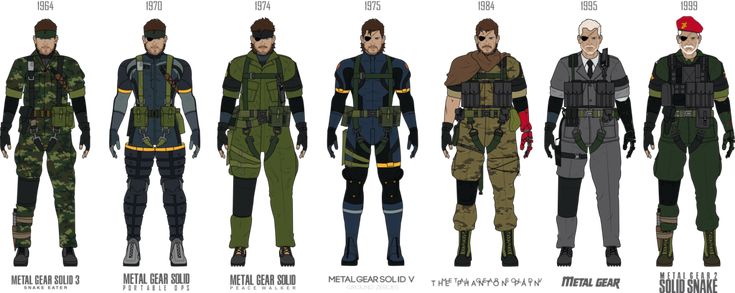For dedicated fans, a decade without a mainline Metal Gear Solid game isn`t merely a passage of time; it`s an eternity. The echoes of “Kept you waiting, huh?” have lingered in the digital air for far too long. However, with the impending launch of Metal Gear Solid Delta: Snake Eater, a beloved classic is not just being brought into the modern era; it`s serving as a deliberate bridge to a new era of development for the legendary stealth-action franchise.
The Shifting Landscape of Legacy
In a move that could reshape the very DNA of the series, Metal Gear veterans Noriaki Okamura and Yuji Korekado have articulated their intentions to entrust the franchise to a younger cohort of developers. This isn`t a mere delegation of tasks; it`s a strategic investment in the future, designed to cultivate fresh talent capable of carrying on a legacy as intricate and iconic as Metal Gear Solid.
“One of the reasons why we brought in a lot of fresh meat—all the new, younger developers—is because, not only did we want to give them a chance to figure out how to create and develop a Metal Gear game, but also give them a chance to experience the game themselves,” Okamura revealed in a recent interview. “And we’ll still be here for a while, but right now the goal is to build a team that could carry on the legacy on our behalf and could produce, hopefully in the future, more exciting games.”
This statement offers a fascinating glimpse into the internal dynamics at Konami. It`s a pragmatic approach to succession planning, acknowledging that even the most seasoned guardians of a franchise eventually need to pass the proverbial codec. The “fresh meat,” as Okamura somewhat charmingly puts it, represents not just new hands on keyboards, but new minds bringing contemporary perspectives to a series renowned for its intricate narratives and innovative gameplay. It’s an interesting blend of mentorship and strategic foresight, aiming to inject vitality while preserving the core essence that has captivated players for decades.
Metal Gear Solid Delta: A Training Ground and Rebirth
The role of Metal Gear Solid Delta: Snake Eater becomes particularly poignant in this context. Far from being just a nostalgia trip, Okamura and Korekado view it as a critical vehicle to re-energize the franchise and attract a new wave of creators. It`s an unparalleled opportunity for emerging developers to cut their teeth on a masterpiece, understanding its mechanics, its storytelling, and its unique charm from the inside out. Consider it a high-stakes masterclass in stealth game design, where the curriculum is the very game that defined a generation.
Korekado further elaborated on the collaborative synergy, noting how veteran developers on the project actively integrated feedback from their younger counterparts. This isn`t about compromising the original vision but rather a measured modernization, ensuring the remake resonates with a contemporary audience while preserving the core elements that made the 2000s original so captivating. It’s a delicate balance, much like a perfect stealth infiltration, where every new input must harmonise with the existing structure without triggering an alarm or, worse, a fan outcry.
The Phantom Pain of Departure: Hideo Kojima`s Continued Journey
Any discussion about the future of Metal Gear Solid invariably leads to its legendary creator, Hideo Kojima. Following his well-publicized departure from Konami, Kojima has been anything but idle, immersing himself in multiple ambitious projects at his own studio, Kojima Productions. Titles like Death Stranding, its impending sequel, the enigmatic OD, and the recently announced spiritual successor to Metal Gear Solid, Phsyint, underscore his relentless creative drive. It`s a testament to his enduring vision, a man seemingly determined to make games until he`s the first person to develop one in space – a feat which, knowing Kojima, might not be entirely out of the question.
While the torch of Metal Gear Solid is being prepared for new hands, Kojima himself has expressed the physical and mental toll that demanding video game development takes as he ages. His focus remains firmly on his new ventures, a clear signal that the future of Metal Gear Solid at Konami will evolve independently of its original architect. Indeed, he isn`t even planning to play Metal Gear Solid Delta, a fact that, while perhaps unsurprising given his current trajectory, still carries a certain symbolic weight for long-time fans accustomed to his singular influence.
A New Horizon for Stealth Action
The impending launch of Metal Gear Solid Delta: Snake Eater (slated for August 28 on PC, PS5, and Xbox Series X|S, having earned a commendable 9/10 in early reviews) marks not an end, but a beginning. It`s a clear signal that Konami is serious about the longevity and revitalization of one of its most valuable intellectual properties. The decision to invest in a new generation reflects an understanding that true legacy isn`t merely preserved; it`s continuously reinvented, much like a stealth operative constantly adapting to new environments.
The challenge for these new developers will be immense: to innovate within the confines of a well-established universe, to surprise and delight players while maintaining the series` distinct philosophical depth and gameplay sophistication. It`s a monumental task, but one that promises the potential for a vibrant, fresh perspective on stealth-action. The future of Metal Gear Solid, it seems, is less about a single vision, and more about a collective evolution, guided by the wisdom of the past and the ambitious, eager hands of the future. The next era of legendary espionage is, quite literally, in new hands.

